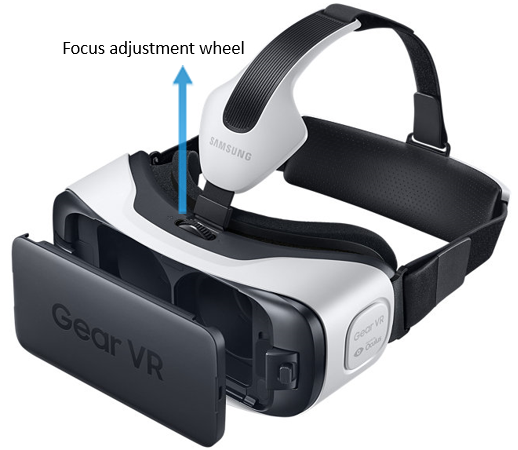Researchers predict that by the year 2050, about half of the world’s population will have myopia.
Considering the target demographic, a significant number of potential VR users suffer from myopia already. Why are there no more VR headsets with adjustable focus?
Several vendors offer replaceable lenses, or various addons to fit the glasses in, but the obvious solution used by the early cheap headsets like GearVR - adjustable distance between lenses and the display, is not being utilized for some reason.
Is it a technical problem, economical problem? Are the modern lenses somehow tuned for a specific distance?

My eyes need different amounts of focusing power, and different astigmatism, for each.
My very simple guess is this. It requires more parts, bigger assembly line, overall higher complexity, adds weight, makes the headset more fragile, and so forth, so I’m sure if they can make a design that accommodates the majority of users, it is cheaper to say “good enough” then to design and accommodate for the rest of the potential users
adjustable distance between lenses and the display
Does this help focus? For the headsets that have this, I thought it was so you could fit your glasses.
I used to have an Index, and moving the lenses didn’t seem to change the focus in the way that glasses do.
Edit: Oh, in your picture, it’s specifically a focus wheel, so must be something different about it.
- Not everyone has the same prescription for both eyes.
- This doesn’t help with astigmatism.
The lenses don’t have to both be at the same distance to be fair.
But would the 2 pictures fit together? When you shorten the lens-display distance, you basically zoom in.
From my limited experience with a Quest 2, yes, the images should be stable. It had a focus wheel. I don’t wear glasses and don’t know what is missing, but I borrowed it from someone that does wear glasses and he never complained. They are not traditional glasses lenses, they are fresnel lenses - the ridgy kind you might see on lighthouse beacons. Where as curved glasses lenses typically have a single curve to them and have limits to how close the object can be before misalignment of the image due to the curved nature of view, fresnel lenses have a flat outer surface and, in this case, are viewing a flat image panel. The only variable is where the convergence point sits in your eye. For standard near/far sightedness, this should be sufficient
Contact lenses help, but you’re right, there should be an easy way to accommodation a prescription.
I prefer to wear my contacts with my Apple Vision, but sometimes when i do not have my contacts in I Opt for my Zeiss Apple Vision lenses, and the devices knows and “swaps” the distance and interpupillary distance automatically. It’s really invisible to me except for swapping the lenses in and the light guard out.
That seems pretty adequate, given the price.
Works pretty well honestly. Only picked up the larger light seal after the vision itself said it needed it, and yeah it was a bit too close with the lenses in. Easy swap.
Does that even help nearsighted people? The screen is literally an inch or two away from your eyes. There’s nothing to focus on.
I’ve never noticed much of an issue seeing in VR games, though I’m not uberblind either.
Yeah. I’m nearsighted and had to get aftermarket prescription lenses for the index in order to use it comfortably. My nearsightedness isn’t even that strong, but I can’t use it without them.
My Vive XR elite has diopter dials, but they’re negative adjustments.
Eh? I just bought some cheap lenses that slip into my headset - it might be that the index was better designed for this than some of the other ones on the market but I think slipover lenses are a fine solution to this problem.
VR isn’t a mature technology. Every design is bad. For what little attention they’ve paid to human eyes, they completely ignore the existence of a human neck. It’s the kind of device that discourages you from playing games because it’s a pain to get out, strap on, and wear. And this is from a guy who keeps his flight sims on the slow hard drive because it takes 5min to get physically set up anyway.
It is much better with a specialized strap, like this one for Quest: https://www.bobovr.com/ . Why standard one is so crappy, to the point of causing pain, is beyond my comprehension.
because it’s cheaper to get contacts
Varifocal lenses are bulkier and restrict an already limited FOV. For my part I prefer how it is now with the headset maximizing FOV and using aftermarket lens inserts for vision correction, but of course that is much easier for me since I am the only person using the headset
Because they are making them to be as “one size fits all” as possible, which also reduces cost. If you need corrective lenses outside of VR, you usually have to get custom made lenses to fit your prescription or just get one/an accessory for one that lets you wear your glasses in the headset.
They could give all the attention in the world to how human eyes vary, and they still would have this issue because corrective lenses are not cheap to make, and everyone is extremely unique that they couldn’t possibly make a simple “works for everyone out of the box” device.
I don’t know how many other headsets are, but the Quest 3 has a pretty good method of adjusting both the distance of the lenses from your eyes, as well as the distance between your eyes to get perfect focus. But again, it assumes you don’t have any vision problems outside of the device.











